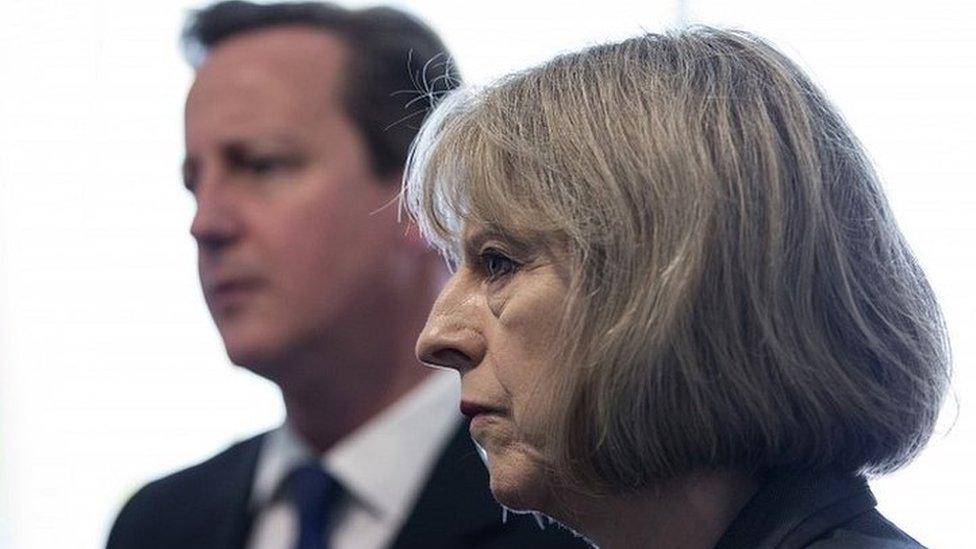Is Theresa May's takeover now complete?
- Published

Is the May takeover now complete? The prime minister cleared out dozens of David Cameron's allies from government when she moved into No 10. Her chancellor almost immediately junked George Osborne's big economic promise, saying his surplus rule would be relaxed.
In the last week, Theresa May is controversially embarking on the reintroduction of an idea that Mr Cameron fought his party to ditch. And now this afternoon, just as the government prepared for its first difficult domestic debate in the House of Commons on grammar schools, Mr Cameron announced that he is quitting politics and will stand down as an MP.
Mr Cameron said that he wished the new government well, that Theresa May has got off to a "cracking" start, and that his decision has got nothing to do with any one particular issue. Friends say that he doesn't want to be a "backseat driver", he feels strongly about the chain of command, leaders being able to lead, and that over the summer he simply realised that he would be, intentionally or unintentionally, a distraction to the government's agenda.
But his decision is a total about-face from his previous commitments to stay on as an MP. What's changed since then?
Well, Theresa May has proved that she is quite prepared to divert from David Cameron's agenda, to distance herself from some of his ideas, and to dismantle the political careers of many of his friends and allies.
A senior Conservative told me today that there are 'lots of non-persons' around at the moment. One former minister close to David Cameron told me "a lot of people are quite cross" at the extent to which Theresa May has sought to move on from the Cameron era.
There has been surprise and irritation among David Cameron and George Osborne's political circle at how fast and how far the new prime minister has gone to dissociate herself from his government in which, after all, she was home secretary for six years.
Friends say that David Cameron's decision has not been made in a fit of pique, he has not merely flounced out because he doesn't like what his successor is doing.
But there was a "very real danger", particularly because he does not support the UK leaving the European Union, that anything he said, any comment he made could "drive a real wedge" between him and the government which could make life harder for Theresa May.
It is not that surprising that the man who used to be in charge has decided to go.
But his departure adds to the sense that May's Downing Street feels more like a new administration after a General Election than a continuation of David Cameron's tenure - "it IS a new government", one senior Tory told me, "not everyone has understood that yet".
With David Cameron's removing himself even from the backbenches, maybe more people will.